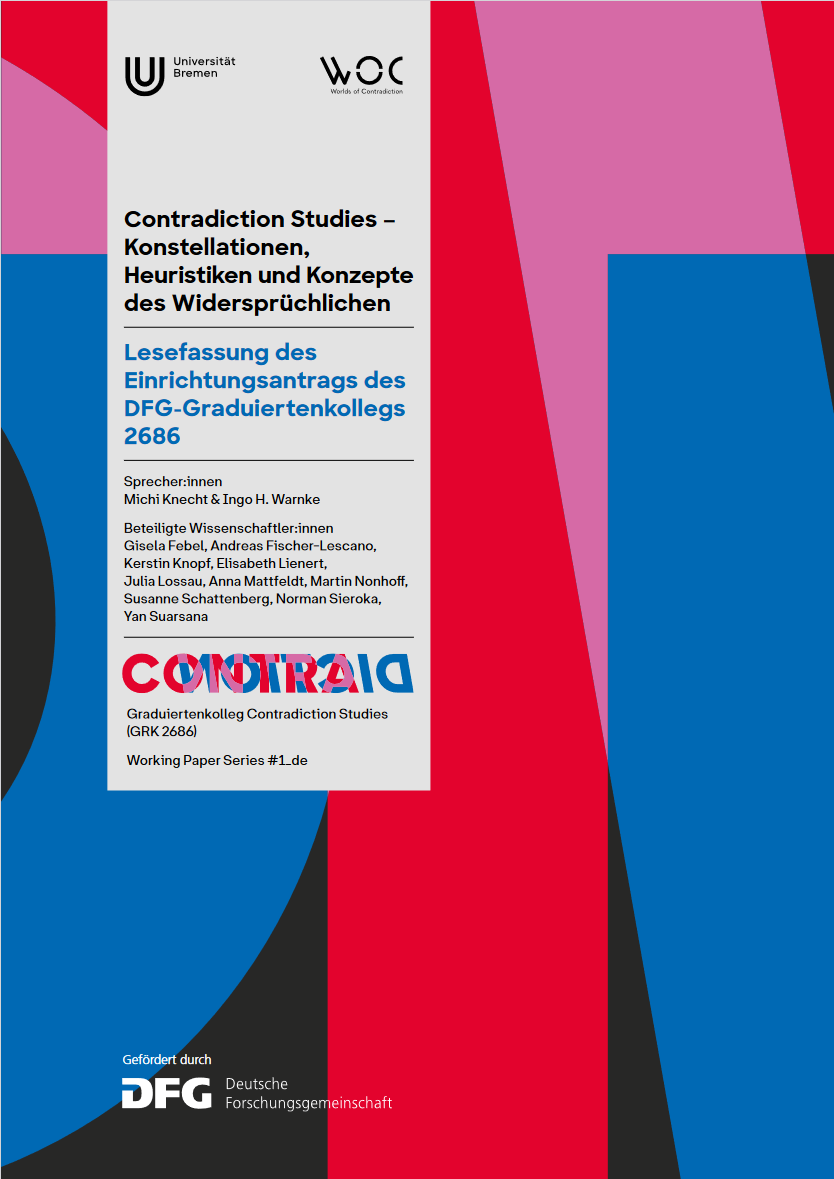
The Research Training Group 2686 Contradiction Studies researches the formation, negotiation and explanatory limits of contradiction.
The point of departure is the assumption that the ordering figure of contradiction with the imperative to resolve contradictions is often in tension with everyday experiences of contradictions in living together. Constellations of contradiction, contradiction avoidance, contradictions and practices of contradiction are therefore systematically researched and established as objects of investigation in the humanities, social sciences and law. The research group combines discourse-, narrative- and text-centred approaches with ethnographic and other qualitative-empirical methods. On the basis of case studies and genealogically or analytically orientated projects, the Centre carries out conceptual and theoretical work. This aims to re-evaluate contradiction, contradictions and contestation in their empirical constellations, heuristic functions and ontological dimensions – also in response to post- and decolonial discussions on the cosmopolitanisation of knowledge production.
The online publication can be found here: https://media.suub.uni-bremen.de/handle/elib/8014
DFG-GRK 2686. 2023. Einrichtungsantrag
Contradiction Studies – Konstellationen,
Heuristiken und Konzepte des Wider-
sprüchlichen, Lesefassung. Graduierten-
kolleg Contradiction Studies (GRK2686)
Working Paper Series #1_de. Bremen: U
Bremen
print
ISBN: 2942-7762
ebook
ISBN: 2942-7770